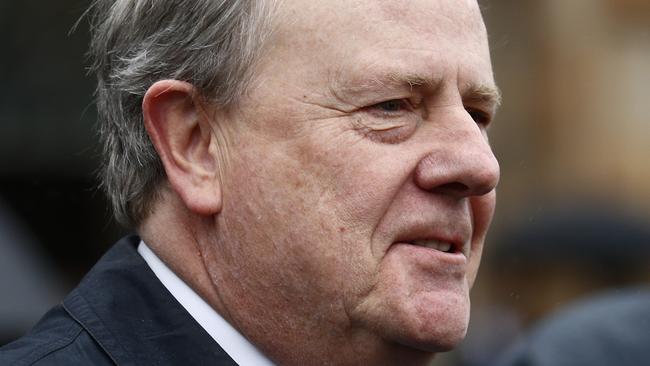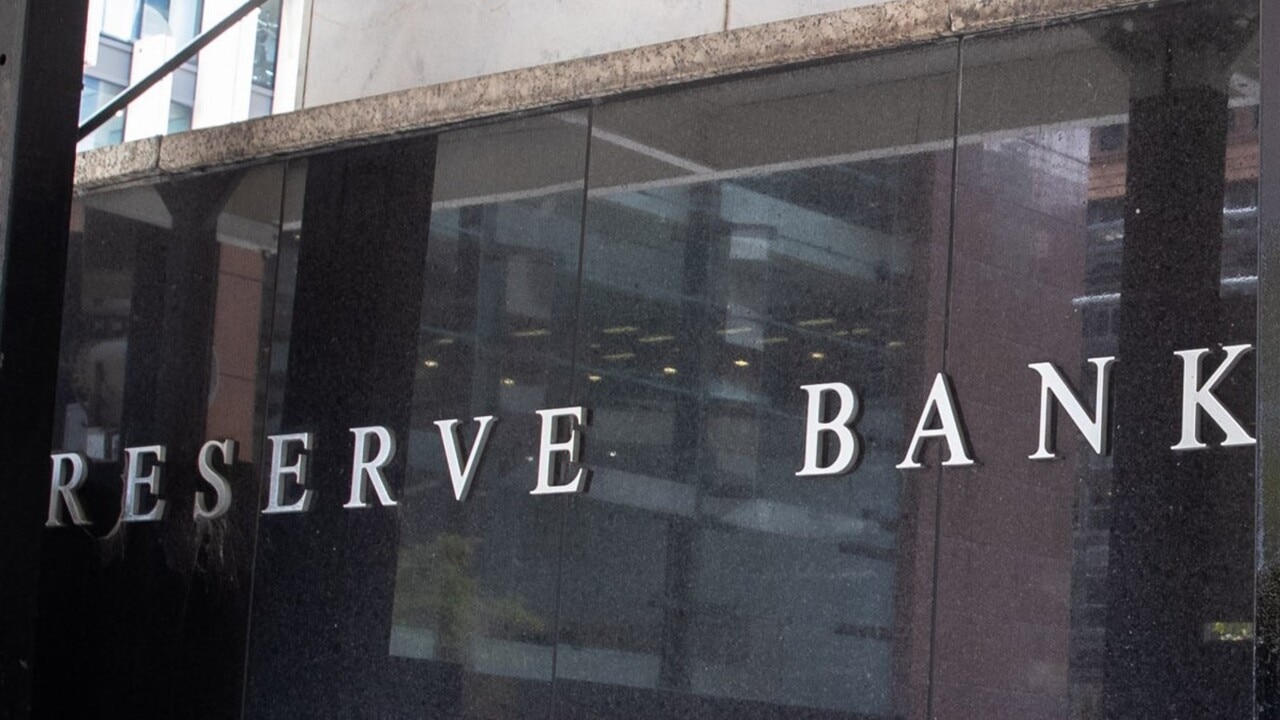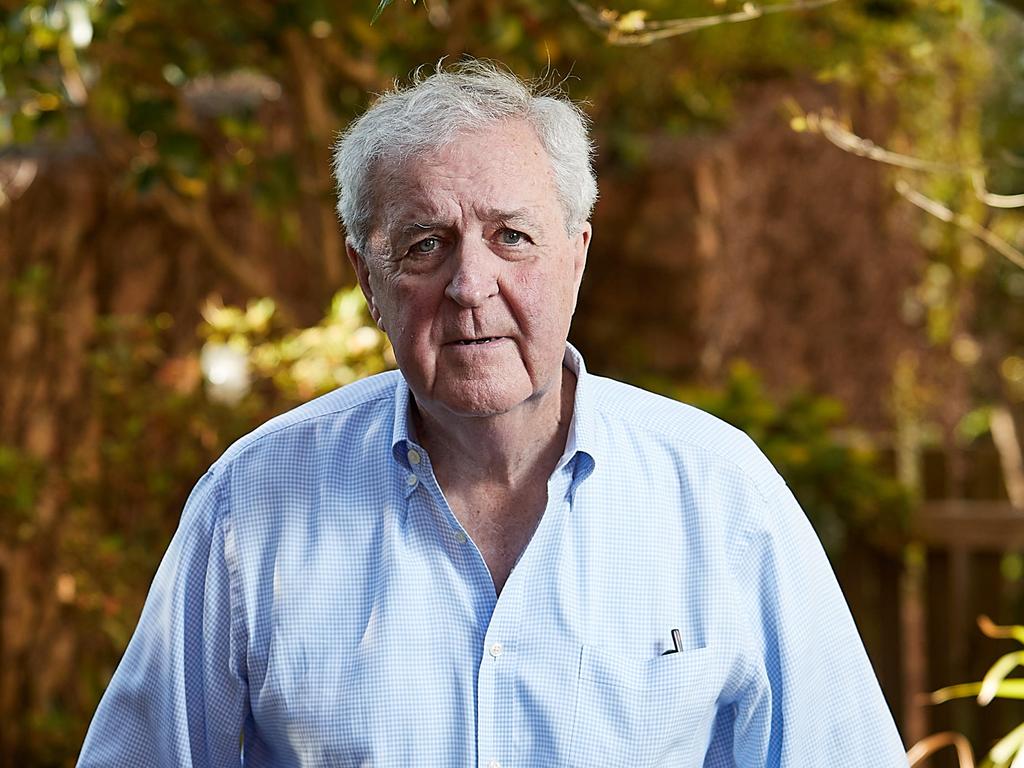Peter Costello joins attack on ‘risky’ RBA reform
Peter Costello has reinforced the critique of the RBA review made by former governor Ian Macfarlane, warning there is ‘no reason to leap into a new system’.

Former treasurer Peter Costello has revealed he warned the Reserve Bank review there was “no reason to leap into a new system that is untested and uncertain”, suggesting the proposed central bank overhaul would fail to deliver better outcomes while diminishing accountability for monetary policy decisions.
Reinforcing the critique of the RBA review made by former reserve bank governor Ian Macfarlane, Mr Costello – the chair of Nine Entertainment and the Future Fund – said there was now a risk of “less focus and less accountability from the RBA in the area where it really should be held responsible”.
The nation’s longest-serving treasurer acknowledged the central bank had “made a hash of things” by engaging in unconventional monetary policy during the pandemic and its flawed forward guidance suggesting the cash rate would not increase until 2024.
But these were errors of judgment rather than institutional failings and, once Jim Chalmers announced the review of monetary policy arrangements in July 2022, Mr Costello said it was destined to be an “inquiry in search of a recommendation”.
“It could have found that the institutional arrangements were sound, that the bank had failed to execute its charter in the short term, but the arrangements had served Australia well over more than two decades,” Mr Costello writes in The Australian. “Importantly, it could have concluded there was no reason to leap into a new system that is untested and uncertain. That was the effect of evidence I gave to the review.”
In his most extensive critique to date of the government’s proposed overhaul of the central bank, Mr Costello said that – even if the changes in the RBA review had been implemented prior to the nation entering the Covid-19 pandemic – it was unlikely they would have “helped the bank avoid the mistakes of 2020-22”.
The Treasurer on Wednesday hit back at the criticism of the RBA review made by Mr Macfarlane, saying he was “not right to say that there is some kind of radical change to the composition of the RBA board”.

Mr Macfarlane, who led the RBA from 1996-2006, warned the recommendations in the review would diminish the authority of the governor by elevating the role of six external members on a new Monetary Policy Board, which would be handed responsibility for monetary policy decisions.
“The same amount of external people will be on the board after the change as before the change,” Dr Chalmers said.
“They will be asked to make the same kind of decision. It is surprising to me that Mr Macfarlane wants to pretend otherwise.”
But Mr Costello backed the critique made by Mr Macfarlane and challenged the direction in the RBA review for the external members of the MPB to “discuss the decisions and thinking of the board publicly, including through at least one speech or public engagement a year”. He suggested this approach would confuse the national debate.
“These members would have a great deal more latitude than a minister (who is bound by cabinet solidarity) to disagree with collective decisions,” Mr Costello said.
“They would get a lot more latitude than a normal director of a public company. Whether the public would be better informed by differing opinions from these various ‘experts’ is another matter,” he added
Mr Costello was joined by former prime minister John Howard who also told The Australian he backed the former RBA governor’s assessment.
“I do agree with Mr Macfarlane very strongly,” Mr Howard said. “He was an excellent RBA governor.”

Mr Macfarlane has argued the stated intent in the RBA review – for the six external members of the MPB to more proactively shape policy decisions – meant it was inevitable the governor would eventually be overruled on interest rate decisions.
And he suggested the review’s recommendation for the publication of unattributed votes by MPB members on interest rate decisions following each board meeting would fuel media speculation about rifts within the bank.
Senior Lowy Institute fellow and RBA board member from 2011 to 2016 John Edwards called for more debate on the review’s recommendations and agreed they would move authority away from the governor.
He told The Australian the most likely candidates for the external members of the MPB were academic economists, particularly given the review’s suggestion that the external members should spend the “equivalent of about one day a week in the role”.
“If you go in the direction of making a public speech, you can only really have people who are sufficiently confident in monetary policy that they can make a speech and answer questions from reporters without embarrassment,” Dr Edwards said.
He suggested this represented a shift to an “expert board rather than an advisory board of the kind we have now”, but questioned whether this arrangement would “get better outcomes”.
Mr Costello said it was widely expected that, when the government went hunting for external members of the MPB, it would need to sort through “a fair contingent from academia”.
“As a result, we now have a long queue of academic economists supporting the proposed restructure and auditioning for possible appointment. Mostly, academic economists were all-in for unconventional monetary policy,” he said. “Mostly they wanted more of it not less. I think it quite unlikely that these sorts of ‘experts’ would have helped the bank avoid the mistakes of 2020-2022.”

Mr Costello also warned the creation of two separate boards – including a standalone Governance Board to oversee day-to-day management – would create potential conflicts within the bank over decisions to use its balance sheet for monetary policy, as happened during the pandemic.
“What is going to happen if the policy of the MPB leads to the devaluation of reserves?” Mr Costello asked.
“The balance sheet is presumably the domain of the management board. Who prevails? When one board becomes two, there will be all sorts of jurisdictional questions to be resolved.
“Complicating the current arrangements, as the RBA review recommends, runs the risk of less focus and less accountability from the RBA in the area where it really should be held responsible.”
While the government has accepted all recommendations of the review in principle, Dr Chalmers has suggested he is working through a “small handful” of issues with the central bank where changes could be made.








To join the conversation, please log in. Don't have an account? Register
Join the conversation, you are commenting as Logout